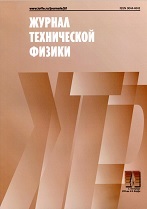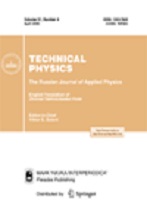|
This article is cited in 11 scientific papers (total in 11 papers)
Electrophysics, electron and ion beams, physics of accelerators
Decomposition of aromatic compounds relevant to organic electronics under exposure to low-energy electrons
M. V. Muftakhov, R. V. Khatymov, R. F. Tuktarov
Institute of Molecule and Crystal Physics, Ufa Federal Research Centre, Russian Academy of Sciences
Abstract:
The persistence of molecules to destruction under the action of low-energy (0–15 eV) electrons is investigated for a representative series of aromatic compounds of interest to organic electronics and photonics. The energy regions of the most effective interaction of free electrons with isolated molecules, which leads to the dissociative decay of molecules due to the formation of short-lived negative molecular ions unstable to fragmentation, are determined using resonance electron capture negative ion mass spectrometry. The characteristic fragmentation channels for molecular ions are revealed for some groups of compounds, and the threshold energies of the most significant fragmentation processes are estimated. Polycyclic aromatic hydrocarbons and oligophenyls are stable to the action of electrons in the electron energy range $\sim$0–3 eV, above which these compounds are decomposed into the single channel of hydrogen atom detachment. For compounds with heterocycles (oxadiazole and maleimide derivatives) in their structure, the stability range narrows down to $\sim$0–1 eV. Electrons with energies exceeding this range initiate the decay of molecules (anions) via various channels among which the detachment of a cyanate anion from a heterocyclic nucleus is the most intense and destructive process.
Received: 06.12.2017
Revised: 05.03.2018
Citation:
M. V. Muftakhov, R. V. Khatymov, R. F. Tuktarov, “Decomposition of aromatic compounds relevant to organic electronics under exposure to low-energy electrons”, Zhurnal Tekhnicheskoi Fiziki, 88:12 (2018), 1893–1899; Tech. Phys., 63:12 (2018), 1854–1860
Linking options:
https://www.mathnet.ru/eng/jtf5755 https://www.mathnet.ru/eng/jtf/v88/i12/p1893
|


|





 Contact us:
Contact us: Terms of Use
Terms of Use
 Registration to the website
Registration to the website Logotypes
Logotypes








 Citation in format
Citation in format 
